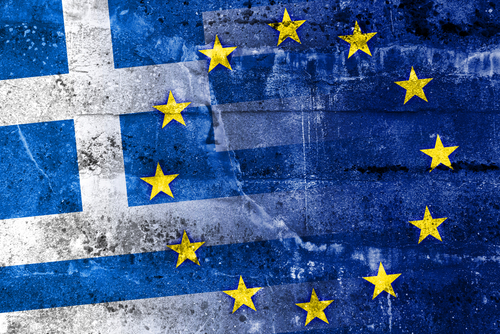Experienced Investor
Grexit; much ado about nothing?

Over the past fortnight, as has frequently been the case in the past five years, frenzied speculation has raged and dark premonitions been issued over the prospect of Greece defaulting on its debt repayments – an eventuality which would see the country leave not only the Eurozone, but the European Union itself.
The consensus among politicians and the media has been that a ‘Grexit’ would be a tragedy for all. Last week, Chancellor George Osborne announced that the Government was taking “all steps” to confornt the “serious economic risks” posed by it; at the same time, President Obama called on Greek Prime Minister Tsipras to make “tough political choices”. NATO has warned Greece of ‘repercussions’ if it leaves.
Markets, and the Euro currency, have also moved in line with developments – stalemate and discord in negotiations prompt falls, progress and harmony rises. A Grexit would likely have extremely negative implications for the country itself, and its creditors would certainly face immediate losses. However, what would it actually mean for the UK? Could a Grexit be a good thing?
Jan Dehn, head of research at Ashmore, certainly believes a Grexit would be good news for the Eurozone – and that a move to actively remove Greece from Euro membership may in fact be necessary at this stage.
“The Eurozone would be better off by ejecting Greece – perhaps into space – even if it leads to short-term negativity in the market,” he says.
Dehn further questions whether the impact on creditors would be significant.
“While 88 per cent of the capital at risk here is owned by other Eurozone governments, they can access capital at record low rates,” he observes.
“€60bn in new money is created monthly by the European Central Bank (ECB) in asset purchases. In fact, the entire stock of Greek government debt – €322bn – amounts to just over five months’ worth of ECB Quantitative Easing (QE).”
The ECB’s effectively open-ended commitment to QE is important to bear in mind when considering the impact a Grexit would have on member state governments.
“The ECB has now established itself – like the Federal Reserve and the Bank of England – as a credible buyer, as well as lender, of last resort,” concludes Dehn.
“It’s clear that the ECB will monetize Eurozone sovereign debt, if need be. As a result, the long term viability of the Euro is no longer questionable.”
What of the notion that a “Grexit” would lead to other weakened Eurozone countries – Portugal, Italy or Ireland, for instance – leaving the single currency? The Greek government themselves seem convinced that the consequences would be dire. In an interview with Italian television network RAI earlier this year, Greek Finance Minister Yanis Varoufakis forecast that “if Greece is forced out of the Eurozone, other countries will inevitably follow…the currency bloc will collapse.”
However, for Barry Norris of Argonaut Capital Management, this is a matter for debate.
“Greece’s debt burden is totally unsustainable, and its government totally recalcitrant, making it unique among Eurozone members,” he says.
“The ECB would likely accelerate its asset purchases in order to restore any lost market confidence in the event of a Grexit. A more credible Eurozone might emerge without Greece. It is time to consider whether that’s now the least worst outcome.”
John Browne, Market Strategist at Euro Pacific Capital, believes geopolitical rather than economic considerations may be driving markets.
“If Greece leaves the EU, Russia – and/or perhaps even China – may step in to provide it with financial support,” Browne explains.
“This will be viewed as a potentially hostile force gaining a key strategic foothold in Europe – a prospect that the EU and the USA alike will consider unacceptable.”
Moreover, Browne believes that these geopolitical anxieties will serve to keep Greece in the EU.
“I believe that the chances of an actual Greek exit are far lower than are commonly believed. We probably have more posturing, delays and threats to look forward to – perhaps even a covert Greek default will be permitted by Brussels, disguised as an extended repayment schedule.”
Ultimately, those apprehensive about the future would do well to remember that in the overall body of the world economy, Greece’s significant is relatively small – its GDP represents 0.39 per cent of the world’s overall, and just over 1 per cent of the Eurozone’s. Andy Haldane, chief economist of the Bank of England, calculates that China creates an economy the size of Greece every month. Whether Greece stays or goes, the economic impact on member states – and the consumers, savers and investors that inhabit them – could well be negligible thanks to QE.
[article_related_posts]